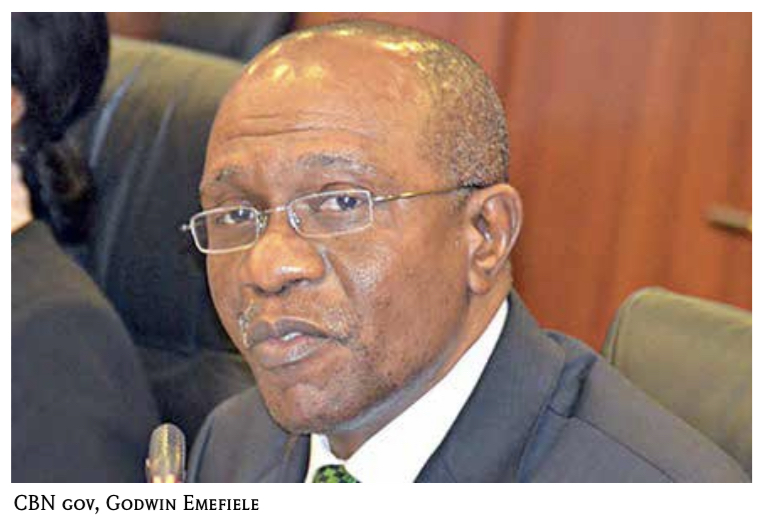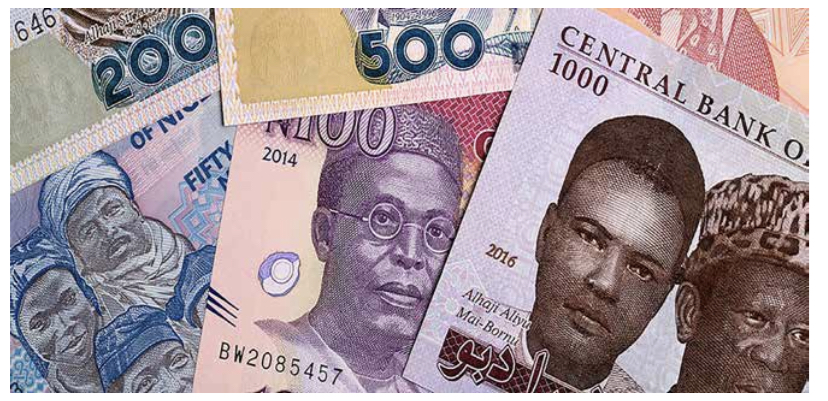Naira · The Journey Down the Valley · The Way out of the Alley

The litany of woes of the Naira could be best understood from a receipt posted on one of the social media fora for a Basic Travellers Allowance (BTA) valued at $1000 in 1980. The receipt showed that the applicant only paid N546.45. to obtain the $1000. Today, 40 years after, the applicant would have to cough out the sum of N520,000 to obtain the same $1000 worth of BTA. And the signs that the United states Dollar would exchange for more Naira is unbaiting.
The Naira, Nigeria’s national currency, has never been the same since the 1980s following the introduction of the Structural Adjustment Programme (SAP) of then Military President, General Ibrahim Babangida. Since then, the local currency has continued to lose its steam against the major currencies of the world. Even in Africa, the Naira has lost its commanding place among African currencies. This partly explains why Nigerians especially youths are desperately leaving the country in droves.
However, the sorry state of the local currency went from bad to worse since July 2016 when President Muhammadu Buhari, directed the Central Bank of Nigeria (CBN) to remove the then official exchange rate of N197 to one United States Dollar. Five years down the line, the local currency has become a shadow of itself as it has crumbled so such a level that the Naira can barely hold out against any national currency in Africa.
The downward trend of the Naira took a further hit last month when CBN jettisoned the official exchange rate of N380 to One United States Dollar. The apex bank has maintained the official exchange rate since July last year. Indeed, the local currency has taken a bloody nose in exchange against other major and minor currencies of the world.
Over the years, the managers of the national economy have come up with a plethora of reasons on how best to stabilize the local currency. The apex bank said in its latest move to stabilize the local currency, that the decision was informed by the need to unify the different exchange rates adopted to manage the local currency.
At the last count, there are four exchange rates operating in the country. These are the official exchange rate, the import and export (I&E) window rate, the preferential rate for some players in the national economy and the parallel market rate. It was learnt from reliable authorities that the unification of the exchange rate was one of the conditions set by the Bretton Wood institutions before the country could access further credit.
Since the move barely one month ago, the local currency has tumbled from the N380 to about N420 to the Dollar at the official exchange market while at the parallel market, the Naira has dropped to N502 to the Dollar. Analysts said it may even get worse as there are no signs that the naira would regain its health in a long time.
Today, the sliding value of the Naira has practically affected the prices of goods and services in the local markets. Even locally produced goods and services including farm produce did not escape the angst of a weakening local currency.
How did the local currency get to this low level?
Mr Fredrick Apeji, Chairman and Chief Executive officer of Alford Conferences Limited, noted that the value of a country’s currency is “basically determined by the interplay of export and import trade”. Apeji stated that for far too long, the Nigerian economy has been very weak when it comes to export trade, which according to him is “the major structural problem that has continuously weakened the Naira over the past decades”
He regretted that even in the face of the dwindling value of the local currency, government “continues to pay lip service to exports while practically allowing the country to remain the dumping ground of all kind of imported goods,” Apeji’s position is further corroborated by Mr Ken Ukoha, President of the National Association of Nigerian Traders (NANTS). Ukoha submitted that so long as the country does not produce what it consumes whether as industrial or domestic goods, its local currency would continue to suffer against other currencies.
Ukoha noted that over dependence on imported goods and services weakens local currencies and what is currently happening to the naira is not an exception. The NANTS President said that the local currency began to lose its competitiveness immediately Nigerians started developing insatiable appetite for foreign goods.
For Chief Gbenga Oludare, a retired civil servant, the local currency can regain its value against other major currencies if government can address the nation’s health and education sectors of the economy. Oludare, noted that the huge amount of foreign exchange that leaves the shores of Nigeria every year to service the health and educational needs of Nigerians is simply mind blowing.
His words: The volume of hard currency Nigeria spends on health tourism annually to India, United Arab Emirates (UAE) and Germany is enough to ruin even the strongest currencies. No national currency can survive the type of onslaught that the Naira faces year in year out and still command any reasonable value”. The senior citizen lamented the parlous state of tertiary institutions in the country, a situation which has made many parents to struggle by all mean to send their wards outside the country for higher education.
He regretted that governments over the years have continued to pay lip service to education in the country. According to him, while Nigeria’s educational system is crumbling, countries like Ghana, Togo and Benin Republic continue to benefit from the decay as some Nigerians who could not afford to send their children to Europe, America or other Asian countries resort to these West African countries for the education of their children.

Pulling Naira out of the fire
Restoring the value of the Naira according to Apeji, would start by government growing the export trade so that the country could earn more hard currency. Currently, the bulk of Nigeria’s foreign exchange earnings comes from crude oil sales. Apeji submitted that the only way to grow the “Nigerian export sector is to take out the entrenched corruption in the energy sector and drive it towards delivering at least 50,000Megawatts of power”
Apeji also advocated what he called the Farms, Factories and Export (FFE) Agenda as a way of restoring the value of the local currency. He noted that Nigeria must go back to real farming in order to produce enough food and reduce her dependence on imported food stuffs. “Nigerians must farm their vast arable land and produce food and cash crops in huge quantities” The second strategy to saving the Naira from further going down the slope is for the country to embark on massive manufacturing of goods. According to Apeji, Nigerians are already champions when it comes to importing all kinds of stuff into the country. “We must equally transform ourselves to become champions in exporting all kinds of stuff into the foreign markets, just as First Bank, United bank of Africa (UBA), GTBank, Zenith Bank and Access Bank have exported Nigeria’s banking brands across the world”, Apeji declared.
The Alford Conferences chief executive further outlined aggressive manufacturing policy as a panacea to the dwindling fortunes of the local currency. Government must encourage Nigerians to go into manufacturing from low-tech, high tech and all kinds of basic as well as sophisticated goods, He commended the efforts of Innoson Vehicle Manufacturing (IVM) in the production all kinds of vehicles which he now exports outside Nigeria.
But beyond the lip service to strengthen the local currency, government officials at the three tiers of government must walk the talk. It is very disheartening that officials who should be in the vanguard to saving the local currency are working and walking in the opposite direction as far as making use of what is available in the country is concerned.
The Nigeria Customs Service (NCS) and other security operatives manning Nigeria’s borders should show some level of patriotism by ensuring that all items on the prohibited list are prevented from coming into the country. When Nigeria makes deliberate effort to consume what it produces and shun imported items, then shall the journey of the recovery of the local currency begin. And government starting from the top should lead the way.
